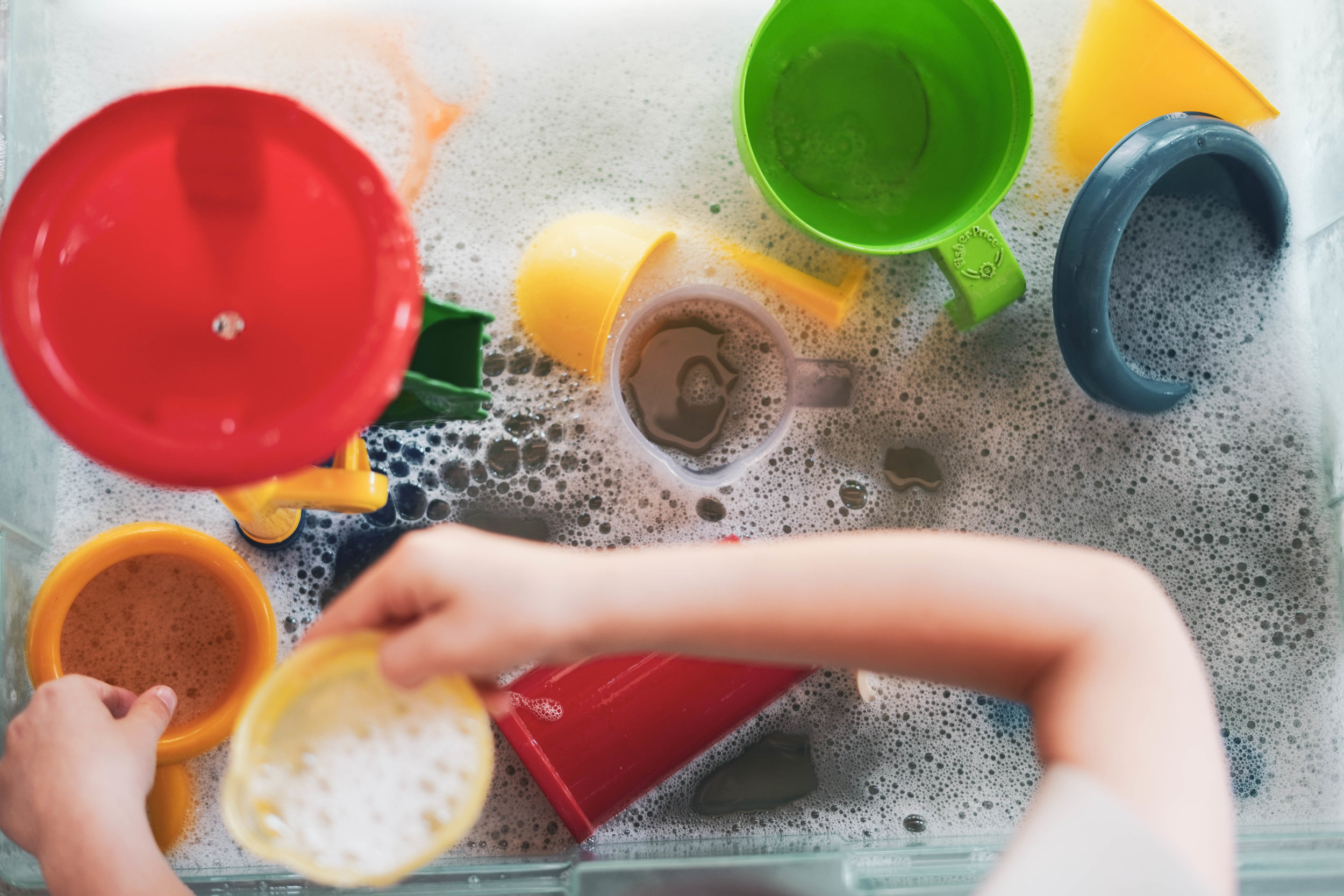Through active involvement in their own education, the children experience the joy of learning and gain the characteristics necessary to complete their most important work, the development of the adult that they will become.
What is Montessori?
Montessori is a “whole child” approach to education.
Dr. Maria Montessori believed that no human being is educated by another person… the goal of early childhood education should not be to fill the child with facts from a pre-selected course of studies, but rather to cultivate a natural desire to learn.
The Montessori Method
Montessori is a philosophy of education. Some see it as a new and progressive method, but it has also been tried and proven for over one hundred years. Dr. Maria Montessori developed this “new education” based on her scientific observations of children. She established that children possess an intrinsic desire to explore, discover, and learn about their environment, and that they learn best in a supportive, home-like setting.
In 1907, she opened her first school “Casa de Bambini” or Children’s House, and began developing the very special learning environment, materials and methods that have been enhanced over the years to educate and challenge children and prepare them so well for later life experiences.
The Montessori environment is a special community for children. Here is a place just for them where they may participate in every aspect of its functioning. The children help to care for and respect the environment, themselves, and their peers. Respect and responsibility are part of everyday living in the Montessori community and in life.
Each Montessori classroom is comprised of a three year, mixed age group of children. It is an environment in which younger students experience the stimulation and guidance of older students. In return, the older students are given the benefit of the leadership role and they solidify their learning experiences by helping others. Students stay in the same class for three full years, allowing the full development of strong, stable relationships and the maturation from younger to older student.
about maria Montessori
“Scientific observation has established that education is not what the teacher gives; education is a natural process spontaneously carried out by the human individual, and is acquired not by listening to words but by experiences upon the environment.
The task of the teacher becomes that of preparing a series of motives of cultural activity, spread over a specially prepared environment, and then refraining from obtrusive interference.
Human teachers can only help the great work that is being done, as servants help the master. Doing so, they will be witnesses to the unfolding of the human soul and to the rising of a New Man who will not be a victim of events, but will have the clarity of vision to direct and shape the future of human society.”
philosophy & Approach
Maria Montessori (1870-1952) was born in Italy and became known throughout the world as a great educational innovator. In 1896 she became the first woman in Italy to finish medical school with a degree in neuropathology. Trained in science and medicine, she used her skillful powers of observation to analyze young children’ s most natural and effective learning strategies that she found rooted in a series of sensitive periods. To enhance these early learning periods, she then designed an ingenious series of hands-on educational materials, reproductions of which are still used in Montessori classrooms on every continent.
More important than her materials, however, is Maria Montessori’s philosophy that allows both teachers and parents to have a very comfortable and fruitful relationship with youngsters. Basic to all her efforts for reform is her conviction that civilization can be saved by children who are respectful, responsible, and resourceful. For over 100 years in Montessori schools all over the world, including Community Montessori School, children are respected as individuals, nourished by caring adults and educated for peace.
why Community Montessori School?
Frequently Asked Questions






